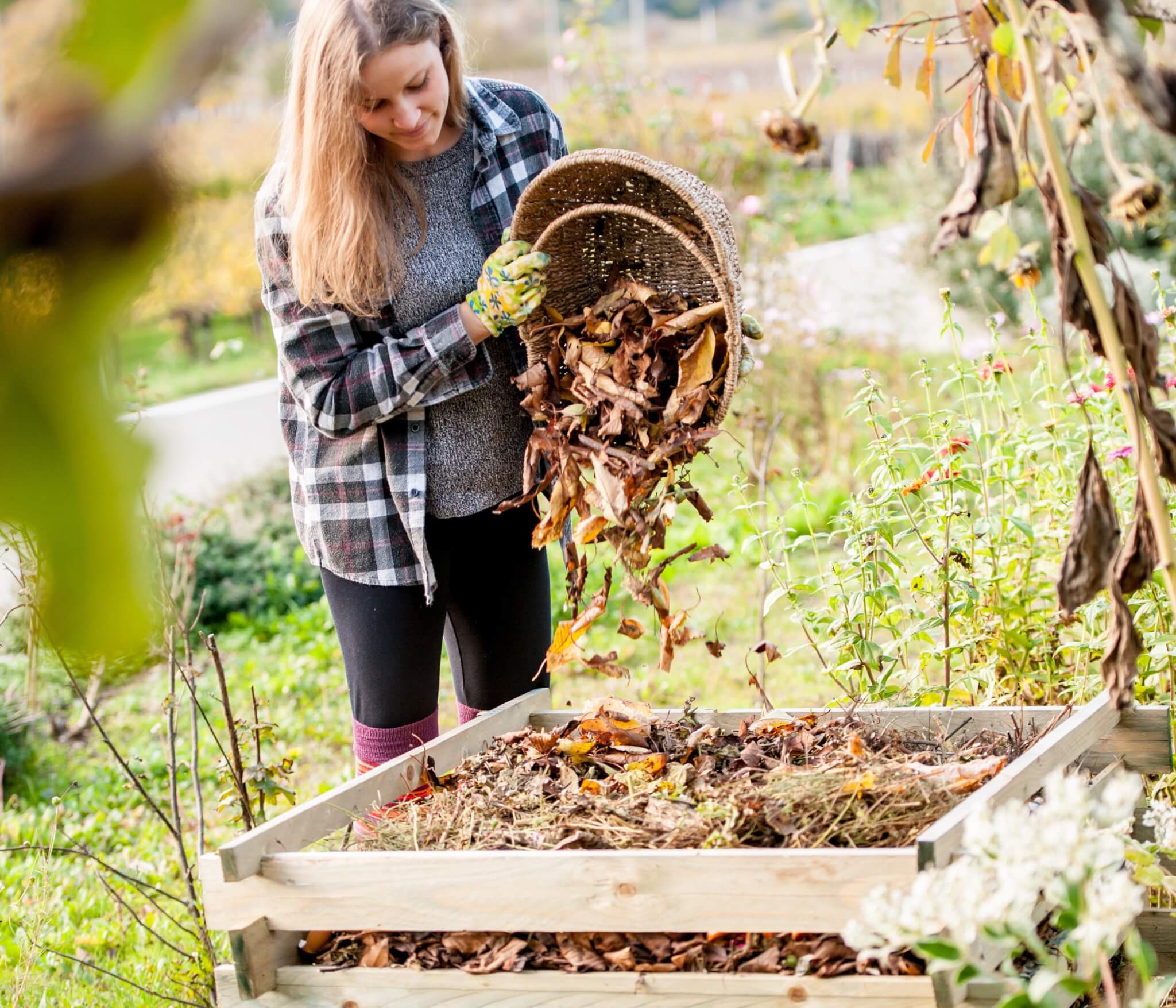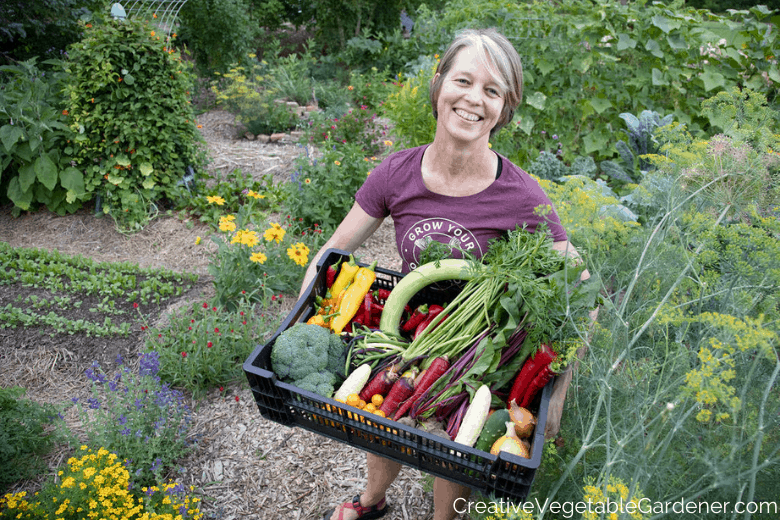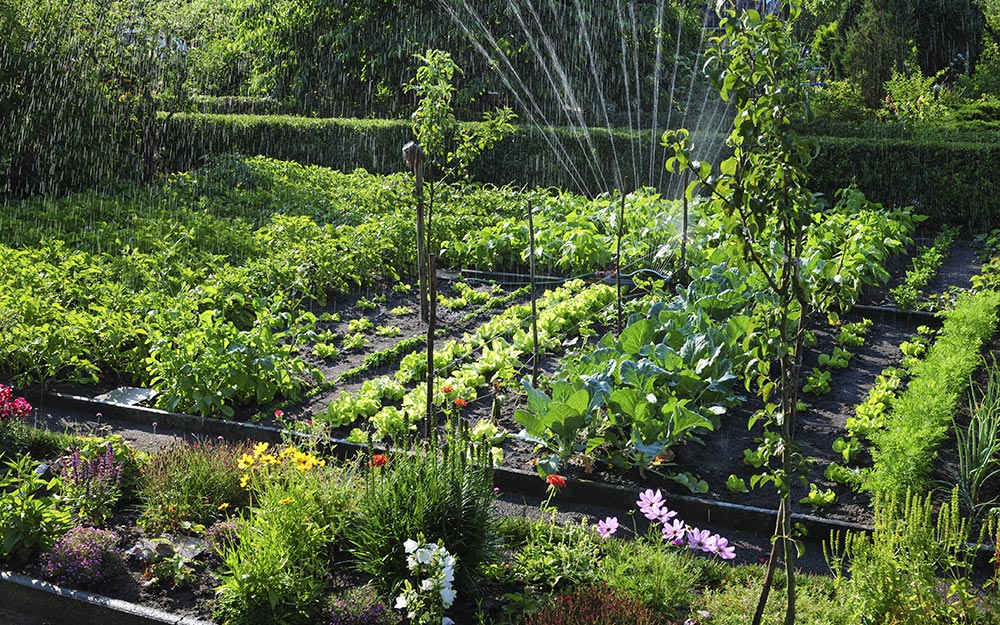To be an organic gardener, avoid synthetic chemicals and focus on natural methods. Use compost and organic fertilizers.
Organic gardening is an eco-friendly approach that promotes sustainable practices. It involves using natural fertilizers, such as compost, to enrich the soil. Avoid synthetic pesticides and opt for natural pest control methods like neem oil or beneficial insects. Crop rotation and companion planting help maintain soil health and reduce pests.
Mulching conserves moisture and suppresses weeds, while rainwater harvesting minimizes water usage. By embracing these techniques, you can grow healthy, chemical-free produce and contribute to a more sustainable environment. Organic gardening not only benefits your garden but also supports biodiversity and reduces your ecological footprint.

Credit: bonnieplants.com
Getting Started
Starting an organic garden can be exciting and rewarding. You’ll grow fresh, healthy food and help the environment. The journey begins with some key steps to set up your garden for success. Follow these simple guidelines to get started on the right foot.
Choosing The Right Location
Picking the best spot for your garden is crucial. Your plants need the right environment to thrive. Follow these tips to choose the perfect location:
- Sunlight: Ensure your garden gets at least 6 hours of sunlight daily.
- Water Access: Choose a spot near a water source for easy irrigation.
- Soil Quality: Select an area with well-draining soil.
- Protection: Avoid windy areas to protect your plants from damage.
Soil Preparation
Preparing the soil is the foundation of a healthy garden. Good soil ensures your plants get the nutrients they need. Follow these steps for effective soil preparation:
- Test Your Soil: Use a soil test kit to check pH and nutrient levels.
- Amend the Soil: Add compost or organic matter to improve soil quality.
- Tilling: Till the soil to a depth of 6-8 inches to aerate and mix.
- Mulching: Apply mulch to retain moisture and reduce weeds.
| Step | Description |
|---|---|
| Test Your Soil | Check pH and nutrients with a soil test kit. |
| Amend the Soil | Add compost or organic matter to enrich the soil. |
| Tilling | Till to a depth of 6-8 inches to aerate the soil. |
| Mulching | Apply mulch to retain moisture and control weeds. |

Credit: www.creativevegetablegardener.com
Selecting Plants
Choosing the right plants is crucial for any organic garden. This step ensures your garden thrives naturally. Below, we delve into selecting plants with a focus on Native vs. Non-Native Plants and Companion Planting.
Native Vs. Non-native Plants
Native plants are those that originate from your area. They adapt well to local soil and climate. This makes them low-maintenance and more resilient to pests.
Non-native plants come from different regions. They may need extra care and attention. Sometimes, they can become invasive, harming local ecosystems.
| Type of Plant | Pros | Cons |
|---|---|---|
| Native |
|
|
| Non-Native |
|
|
Companion Planting
Companion planting is the practice of growing plants together. These plants help each other grow better. This method reduces the need for chemical fertilizers and pesticides.
Here are some popular companion plants:
- Tomatoes and Basil – Basil repels tomato pests.
- Carrots and Onions – Onions deter carrot flies.
- Beans and Corn – Beans fix nitrogen, benefiting corn.
Companion planting helps improve soil health. It also promotes biodiversity in your garden. This leads to a more balanced ecosystem.
Organic Fertilizers
Organic fertilizers are key to a healthy garden. They enrich the soil and help plants grow strong. Organic fertilizers come from natural sources. They are free from synthetic chemicals.
Composting Basics
Composting turns food scraps and yard waste into rich soil. This process is simple and eco-friendly. To start, gather kitchen scraps like fruit peels and veggie leftovers.
- Avoid meat, dairy, and oily foods in your compost.
- Mix in yard waste like leaves and grass clippings.
- Keep your compost moist but not soggy.
- Turn the compost pile every few weeks to aerate it.
In a few months, you’ll have dark, crumbly compost. This is also called “black gold.” It’s ready to enrich your garden soil.
Green Manures And Cover Crops
Green manures and cover crops protect and nourish the soil. These plants grow during off-seasons when your garden rests. They offer many benefits:
| Cover Crop | Benefits |
|---|---|
| Legumes | Add nitrogen to the soil |
| Grasses | Prevent soil erosion |
| Mustards | Suppress weeds |
Plant cover crops like clover or rye. These crops enrich the soil and improve its structure. They also help control pests and diseases.
Once the cover crop matures, you can chop it down. Leave it on the soil surface to decompose. This adds organic matter back into the soil.
Using green manures and cover crops is a smart way to maintain soil health. Your garden will be ready for planting season after season.
Natural Pest Control
Natural pest control helps keep your garden healthy. It avoids chemicals and promotes a balanced ecosystem. Learn how to use beneficial insects and homemade remedies.
Beneficial Insects
Some insects are good for your garden. These insects eat harmful pests. Use them to control pests naturally.
| Beneficial Insect | Target Pests |
|---|---|
| Lacewings | Aphids, mealybugs, caterpillars |
| Ladybugs | Aphids, mites, whiteflies |
| Praying Mantises | Beetles, crickets, grasshoppers |
Attract beneficial insects with plants like dill, fennel, and marigolds. These plants provide nectar and pollen. Beneficial insects will stay and help your garden.
Homemade Remedies
Make simple remedies at home to keep pests away. They are safe and cost-effective.
- Garlic Spray
- Soap Solution
- Neem Oil
Blend garlic and water. Spray on plants to repel pests.
Mix water and mild soap. Spray on plants to kill soft-bodied insects.
Mix neem oil and water. Spray to control a wide range of pests.
These remedies are safe for your plants and the environment. They help control pests without harmful chemicals.
Water Conservation
Water conservation is crucial for organic gardeners. Efficient use of water ensures healthy plants and sustainable gardening. Let’s explore how to save water effectively.
Rainwater Harvesting
Rainwater harvesting is a great way to collect free water. Install a rain barrel under your downspout. This way, you can store rainwater for your garden.
Use a fine mesh screen to keep debris out of the barrel. A full barrel can provide water for many days. This method helps reduce your dependence on municipal water.
Here are some benefits of rainwater harvesting:
- Reduces water bills
- Conserves municipal water
- Provides chemical-free water for plants
Efficient Irrigation Techniques
Efficient irrigation saves water and keeps plants healthy. Drip irrigation is a great method. It delivers water directly to the roots. This reduces evaporation and runoff.
Use soaker hoses to water plants slowly. This ensures deep root growth. Water early in the morning or late in the evening. It helps reduce water loss due to evaporation.
Below is a comparison table of irrigation methods:
| Method | Water Efficiency | Best For |
|---|---|---|
| Drip Irrigation | High | Vegetables, flowers |
| Soaker Hoses | Moderate | Shrubs, garden beds |
| Sprinklers | Low | Lawns |
Using mulch helps retain soil moisture. Spread a 2-3 inch layer of organic mulch around plants. This also keeps weeds at bay.
Water conservation is easy with these simple steps. Your garden will thrive, and you’ll save water too.
Sustainable Practices
Being an organic gardener means using sustainable practices that benefit both your garden and the environment. These methods help maintain the health of your soil, conserve water, and reduce the need for synthetic chemicals. Let’s explore some key sustainable practices like crop rotation and mulching.
Crop Rotation
Crop rotation involves changing the types of crops grown in a specific area each season. This practice helps prevent soil depletion and reduces pest buildup.
| Season | Type of Crop |
|---|---|
| Spring | Leafy greens (lettuce, spinach) |
| Summer | Fruit-bearing (tomatoes, peppers) |
| Fall | Root vegetables (carrots, beets) |
| Winter | Legumes (peas, beans) |
Mulching
Mulching involves covering the soil with a layer of organic material. This helps retain moisture, control weeds, and improve soil health.
- Organic Mulch: Grass clippings, straw, and compost.
- Inorganic Mulch: Gravel, stones, and plastic sheets.
Use organic mulch for a healthier garden. It decomposes and enriches the soil.
Seasonal Maintenance
Seasonal maintenance is crucial for an organic garden. It ensures healthy plant growth and productivity. Learn the necessary tasks for each season. Keep your garden thriving all year round.
Pruning And Trimming
Pruning and trimming are essential for plant health. Remove dead or diseased branches. This allows more light and air to reach the plants. Use sharp, clean tools for best results. Cut at a 45-degree angle to prevent damage.
- Remove dead branches
- Trim overgrown areas
- Ensure proper air circulation
- Use clean tools
Regular pruning helps prevent plant diseases. It also encourages new growth. Don’t forget to compost the trimmings. This creates a nutrient-rich addition to your soil.
Winterizing Your Garden
Winterizing your garden prepares it for the cold months. Protect your plants from frost and snow. Start by cleaning up the garden area. Remove any dead plants and debris.
- Clean up the garden area
- Remove dead plants and debris
- Mulch around the base of plants
- Cover delicate plants with burlap or frost cloth
Mulch helps insulate the soil. It keeps the roots warm. Use straw or leaves as mulch. Cover delicate plants with burlap or frost cloth. This prevents frost damage.
Watering before a freeze can also help. It provides plants with the moisture they need. Winterizing ensures your garden survives the winter. It will be ready to bloom in spring.
Community And Resources
Engaging with the community and utilizing local resources is essential for organic gardening. Connecting with others can provide valuable insights and support. Here’s how to make the most of your community and resources.
Joining Gardening Groups
Joining gardening groups can be incredibly beneficial. These groups often share tips, advice, and experiences. You can find groups online or in your local area.
- Facebook Groups
- Local Gardening Clubs
- Community Gardens
These groups can help you stay updated on best practices. They also offer a sense of community and support.
Utilizing Local Resources
Utilize local resources to enhance your organic gardening efforts. These resources can include soil testing, composting facilities, and local experts.
| Resource | Benefit |
|---|---|
| Soil Testing | Helps understand soil health |
| Composting Facilities | Provide organic material |
| Local Experts | Offer personalized advice |
Many local extension offices offer free or low-cost services. These can be invaluable for a successful garden.
- Visit your local extension office.
- Ask for soil testing services.
- Inquire about composting programs.
By using these resources, you can ensure your garden thrives. Engaging with your community and using local resources can make a big difference.

Credit: ecoactions.homedepot.com
Frequently Asked Questions
What Is Organic Gardening?
Organic gardening involves growing plants without synthetic chemicals. It focuses on natural processes and materials.
How Do I Start Organic Gardening?
Begin with healthy soil, choose organic seeds, and use natural fertilizers. Avoid synthetic pesticides.
What Are The Benefits Of Organic Gardening?
Organic gardening promotes biodiversity, improves soil health, and produces healthier food. It’s eco-friendly and sustainable.
What Organic Fertilizers Can I Use?
Use compost, manure, bone meal, and fish emulsion. These enrich the soil naturally and promote plant growth.
Conclusion
Embracing organic gardening enriches your life and the environment. Start small, be patient, and enjoy the journey. By following sustainable practices, you’ll cultivate healthier plants and a greener space. Remember, every effort counts. Happy gardening!
